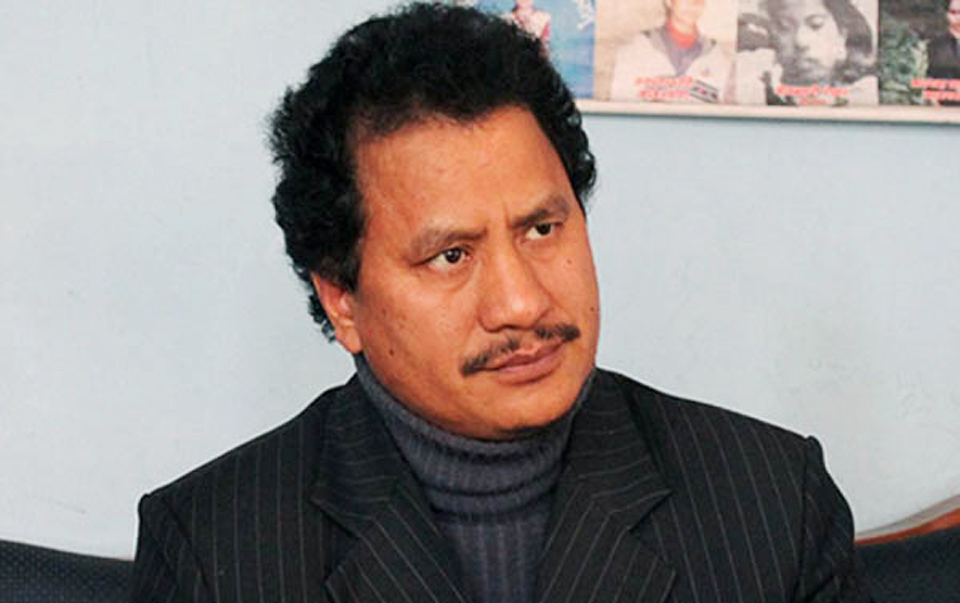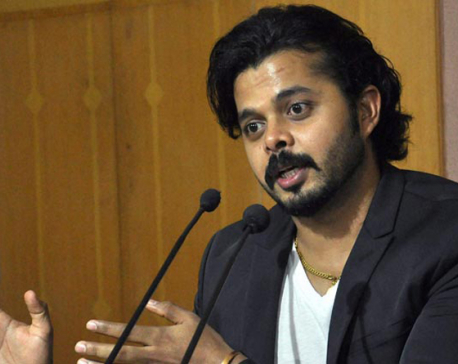
OR
News Analysis
Police face new challenges in drive against Chand outfit
Published On: May 13, 2019 07:49 AM NPT By: Kosh Raj Koirala | @KoshRKoirala

KATHMANDU, May 13: On March 12, the government decided to ban all activities of Netra Bikram Chand-led Communist Party of Nepal (CPN) and treat the splinter group of former Maoists as a terrorist outfit after it started extortion and carrying out bomb blasts. Since then, police have already arrested hundreds of its leaders and cadres from across the country, while leaving its organizational structure largely broken.
Although the police action has significantly reduced the incidences of the outfit’s criminal activity, the law enforcement agency is now facing two major challenges.
First, the arrested leaders and cadres are being released by the court one after another with little success in recovering their weapons. Second, the Chand-led cadres have started adopting a new strategy of planting bombs, many hoaxes as well, in public places unlike in ‘targeted’ places in the past to apparently “terrorize” the public.
According to data maintained by Nepal Police headquarters, police arrested a total of 579 leaders and cadres of the Chand-led group until last week. While 135 of them were released after interrogation, 338 others were produced before the court. Most of those taken before the court were released on bail.
Senior officials of Nepal Police say the release of most of the cadres and leaders of Chand outfit poses challenge to their current strategy to curb the outfit’s criminal activities.
“This poses great challenge for us. The more leaders and cadres stay behind the bars, the more our current strategy is seen effective,” said an official, asking not to be named.
Police officials have expressed frustration over the release of most of the leaders and cadres of the outfit, although they are arresting the outfit’s central and district level leaders almost every day since the launch of the offensive. Also, police have not been able to seize a large number of sophisticated weapons believed to have been held by the group except for a few such arms recovered from Chand’s home village in Kapilbastu.
Former Nepal Police chief Kuber Singh Rana suggests Nepal Police make use of all available technologies so that they could furnish strong evidences to ensure that the arrested leaders and cadres remain behind bars.
“Since Nepal Police has officials who have experience of tackling full-fledged insurgency, I assume they are making use of all available technology to gather irrefutable evidences,” he said.
The government, according to sources, decided to ban all activities of the outfit after intelligence reports that it was planning to start an insurgency, bringing together former Maoist combatants and other disgruntled elements in the country.
The government was alarmed further after a diary of the outfit’s standing committee member Khadga Bahadur Bishwakarma revealed that they were planning a physical assault on the prime minister and the main opposition leader among others.
Unlike the targeted attacks in the past, the Chand-led group has lately started planting bombs in locations with greater mobility of people. While they planted a powerful bomb near Gandaki Provincial Assembly building on April 11, it is suspected that the Chand-led group was behind planting a bomb in Kankai Bridge in the East-West Highway in Jhapa on Sunday.
In a similar instance on May 6, the group is believed to be responsible for a bomb hoax at Munibhairab Complex in Koteshwar.
Senior police officials said although these types of incidents may not cause much collateral damage, they certainly create fear among the public and raise questions on the ability of the police in maintaining law and order.
Before police started its offensive against the outfit, the Chand-led outfit had been carrying out targeted attacks. They had detonated a powerful bomb at the corporate office of Ncell in Lalitpur on February 22, leaving one person dead and two others seriously injured. The same outfit detonated an equally powerful bomb at the residence of Nepal Association of Foreign Employment Agencies (NAFE) Chairman Rohan Gurung on March 10. They also planted bombs targeting other business houses.
Conflict expert Muma Ram Khanal, who closely observed the decade-long insurgency as a Maoist leader himself for sometime, said that the Chand-led group is waging a ‘war’ against the state—something they cannot afford to continue both in view of their organizational strength and financial resources.
“The Chand-led group seems to have launched its war against the state purely on whims rather than taking into account the changed political context of the country,” he said.
Experts fear that the group could bolster its strength by capitalizing on the growing frustration among people when the state chooses to use only coercive measures to contain these kinds of groups.
“While the government uses its coercive measures, it should also continue negotiation through backdoor channels. Resolving this low-intensity conflict through negotiations serves the interests of both the government and the Chand-led group,” Khanal further said.
You May Like This

Kerala HC lifts life ban on cricketer Sreesanth
KOCHI, August 7: In a relief to cricketer S Sreesanth, the Kerala High Court today lifted the life ban imposed on... Read More...

Angelina Jolie takes on travel ban in New York Times op-ed
NEW YORK, Feb 3: Angelina Jolie says that discriminating against refugees for their religion or country of origin "invites the very... Read More...

NCF seeks ban on sale of GoodLife Glow lollipop
KATHMANDU, July 6: National Consumer Forum (NCF) has urged the government to put a ban on sale GoodLife Glow brand... Read More...





Just In
- MoHP cautions docs working in govt hospitals not to work in private ones
- Over 400,000 tourists visited Mustang by road last year
- 19 hydropower projects to be showcased at investment summit
- Global oil and gold prices surge as Israel retaliates against Iran
- Sajha Yatayat cancels CEO appointment process for lack of candidates
- Govt padlocks Nepal Scouts’ property illegally occupied by NC lawmaker Deepak Khadka
- FWEAN meets with President Paudel to solicit support for women entrepreneurship
- Koshi provincial assembly passes resolution motion calling for special session by majority votes






_20220508065243.jpg)






Leave A Comment